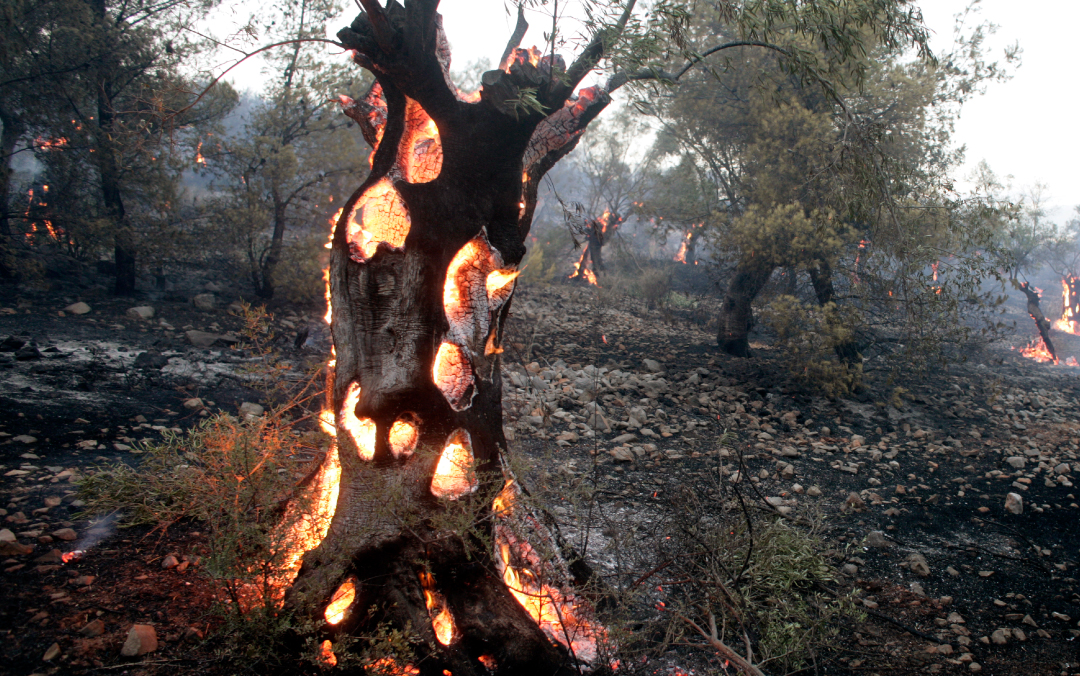In the 2017 Netflix documentary Chasing Coral, cameras captured reefs glowing in eerie shades of pink, violet and blue. Not a cinematic trick, but biology. When seas warm from human-driven greenhouse gas emissions, corals expel the algae that feed them. For a fleeting moment, their fluorescent proteins flare — a stress response scientists call “coral fluorescence”. Soon after bleaching takes hold and the corals die.
That haunting image is no longer just a glimpse of an ecosystem in crisis. It has become emblematic of where we now stand. According to the Global Tipping Points Report 2025, released this week, warm-water coral reefs — home to a quarter of all ocean life — are now considered by scientists to have reached their tipping point. Current warming of about 1.4 °C has pushed reefs beyond their estimated survival threshold. The ongoing global bleaching event is now in its third year, affecting 84% of reefs in more than 80 countries and signaling losses that will reverberate far beyond the ocean.
For nearly a billion people, reefs are breadbaskets and storm barriers. In Fiji and other Pacific Islands, they underpin food security and shield coastlines from surging seas. In the Caribbean, they anchor tourism economies worth billions. Their loss is not only ecological, it is profoundly social and economic, falling hardest on communities who contributed least to the emissions driving the crisis.
Beyond the reefs
The report warns that other major parts of the Earth's climate systems are approaching similar thresholds. The Amazon rainforest, already strained by deforestation and climate change, could tip into widespread dieback at lower temperatures than previously thought. Such a shift would not only devastate biodiversity but disrupt rainfall patterns essential to South America’s agriculture and to Indigenous communities whose stewardship has preserved vast stretches of the forest.
The Atlantic Meridional Overturning Circulation (AMOC) — a system of currents that regulates climate across Europe, Africa, and the Americas — is weakening. Even without a full collapse the weakened AMOC would bring harsher winters to northern Europe, disrupt African and Asian monsoons and imperil food systems worldwide. Meanwhile, parts of the Greenland and West Antarctic ice sheets may already be locked into long-term retreat, committing future generations to meters of sea-level rise.
A global collaboration
The new 2025 report is the product of a vast scientific effort: 160 scientists from 87 institutions in 23 countries. It builds on the previous Global Tipping Points Report published in 2023, and is led by ClimTip partners at the University of Exeter with contributions from the Potsdam Institute for Climate Impact Research and many others. About two dozen ClimTip scientists served as authors or reviewers. Lead author Professor Tim Lenton, from the Global Systems Institute at the University of Exeter, said:
“We are rapidly approaching multiple Earth system tipping points that could transform our world, with devastating consequences for people and nature. This demands immediate, unprecedented action from leaders at COP30 and policymakers worldwide.”
The report underscores the urgency of building consensus on climate tipping points science. While the IPCC will include, for the first time, a dedicated chapter on tipping dynamics in its next 7th assessment cycle (expected in 2028), this effort provides an essential bridge: the most up-to-date synthesis available to policymakers, financiers and civil society. As Dr. Manjana Milkoreit, lead author of the governance section, put it:
“We have the knowledge. What we need is a kind of governance that matches the nature of this challenge.”
Living at the threshold
Tipping points differ from gradual climate change: they are thresholds where shifts accelerate and become irreversible on human timescales. Coral reefs appear to be the first clear system to breach such a threshold, but others may be perilously close. Overshooting 1.5 °C, expected within this decade, risks setting them in motion.
The report also underscores that tipping dynamics can work in our favor. Social and technological systems can tip too. The rapid spread of solar, wind, electric vehicles, and heat pumps shows how clean technologies can scale faster than expected. With the right policies, these transitions could cascade across sectors, offering a pathway to counter the risks.
Coral fluorescence, as a vanishing glow at the edge of survival, now stands as both warning and question: will we allow other parts of the Earth system to unravel further, or can we tip ourselves toward safer ground in time?
The full report and summary for policymakers are available online.
Image credit: Digital artwork "Coral Warning" by Kuat Abeshev.





